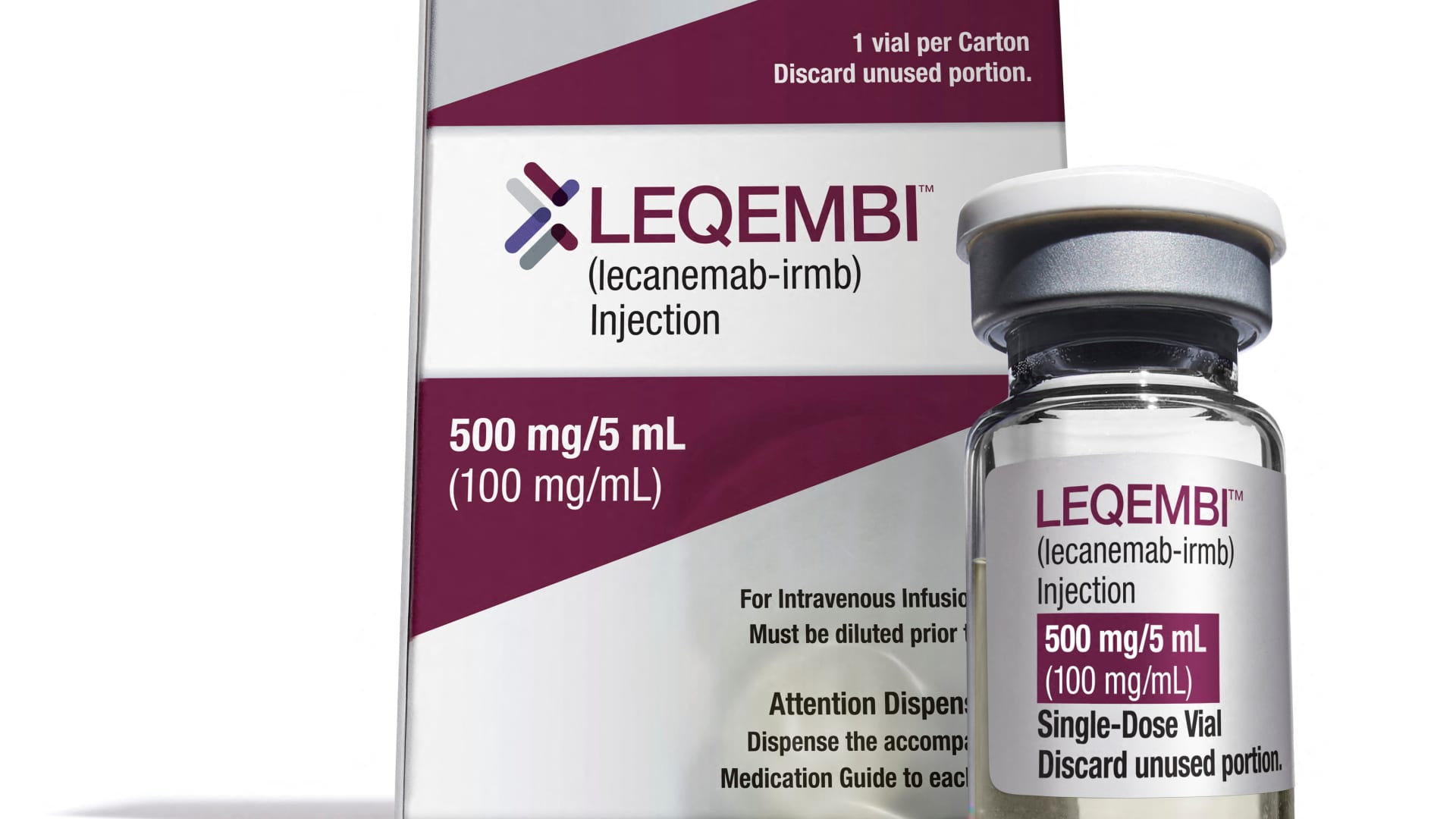The Food and Drug Administration (FDA) fully approved the Alzheimer’s treatment Leqembi on Thursday, marking a significant expansion in access to the costly drug for older Americans. Medicare announced that it will now cover the antibody treatment for patients enrolled in the insurance program for seniors, subject to certain conditions.
Leqembi is the first Alzheimer’s antibody treatment to receive full FDA approval and broad coverage through Medicare. While it is not a cure, the treatment has been shown to slow cognitive decline by 27% over 18 months in Eisai’s clinical trial. The treatment targets a protein called amyloid that is associated with Alzheimer’s disease and is administered through intravenous infusion twice a month.
The Medicare coverage is a crucial step in helping older Americans with early Alzheimer’s disease afford the treatment, as most people on Medicare cannot afford the annual price of $26,500 set by Eisai without insurance coverage. Previously, Medicare only covered Leqembi for patients participating in clinical trials after the treatment received expedited approval in January, severely limiting access to the drug.
To be eligible for coverage, patients must be enrolled in Medicare, diagnosed with mild cognitive impairment or mild Alzheimer’s disease, and have a doctor participating in a data-collection system established by the federal government to monitor the treatment’s benefits and risks.
While Leqembi is not a cure, Joanna Pike, president of the Alzheimer’s Association, states that it will help patients in the early stages of the disease maintain their independence, conduct their daily lives, and spend more time with their families.
However, the treatment does carry serious risks of brain swelling and bleeding, with three deaths reported during Eisai’s study. The FDA has yet to establish a clear link between Leqembi and these deaths.
Alzheimer’s disease is the most common cause of dementia among older adults and the sixth leading cause of death in the U.S., according to the FDA.
Experts acknowledge that while Leqembi has demonstrated some benefit to patients, its efficacy is modest. Patients should be informed about the benefits, risks, and logistical challenges of receiving the treatment and make an informed decision based on their individual circumstances.
Medicare coverage requires patients to find a healthcare provider participating in a registry system that collects real-world data on the drug’s benefits and risks. However, concerns have been raised that this requirement may create barriers to treatment, especially for those in rural or underserved communities.
There is also concern over the potential shortage of specialist physicians and locations to administer the infusions if the demand for Leqembi is high. Some studies have predicted long wait times for antibody treatments like Leqembi, ranging from months to years, depending on demand.
The high cost of Leqembi is another point of contention. Medicare patients will pay 20% of the medical bill after meeting their Part B deductible, potentially resulting in up to $6,600 in annual out-of-pocket costs. The treatment could cost Medicare up to $5 billion a year, according to estimates.
Some lawmakers, such as Sen. Bernie Sanders, have criticized the price of Leqembi as being too high and are calling for measures to reduce the cost.
Despite the controversies surrounding the treatment, the FDA’s full approval of Leqembi is seen as a significant advancement in Alzheimer’s treatment options.

